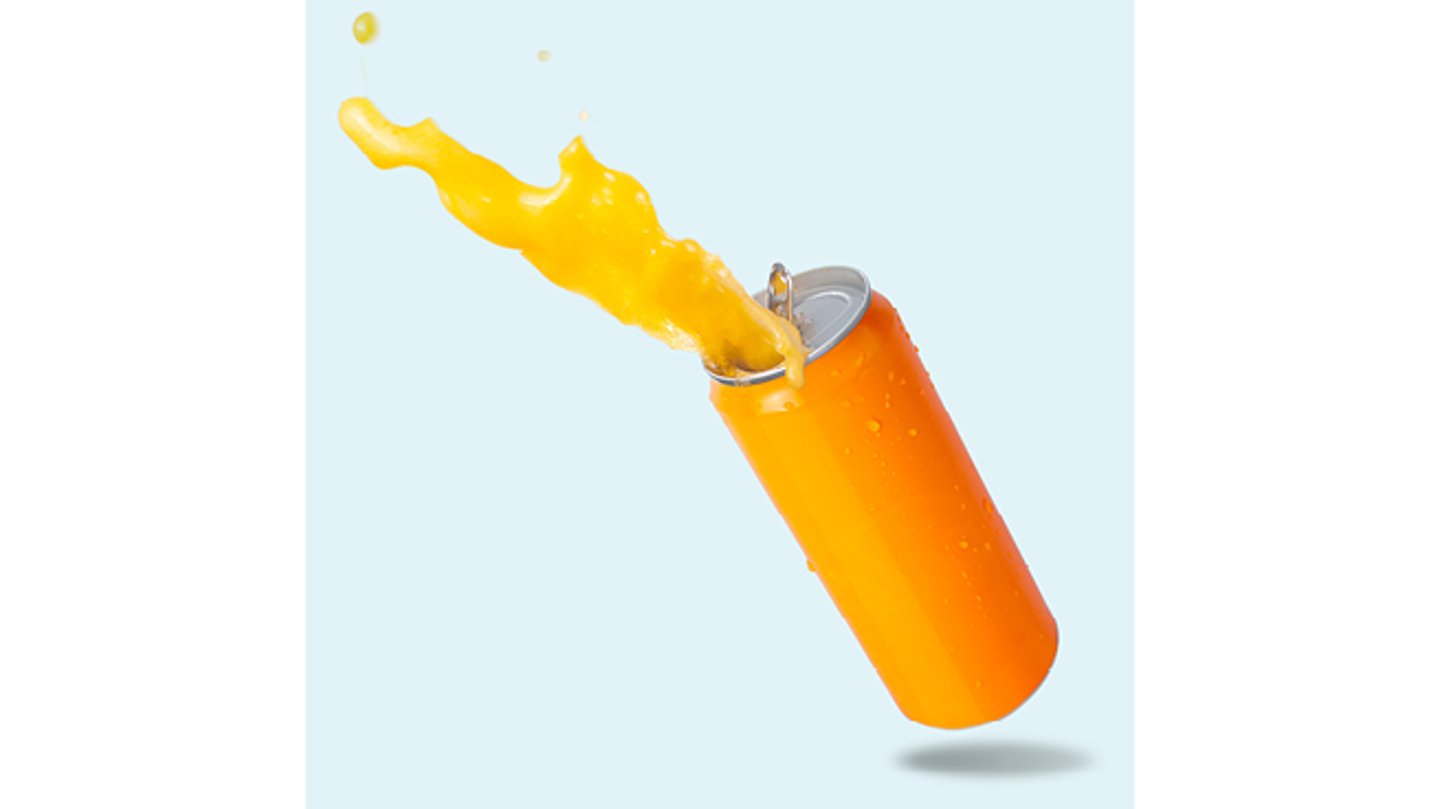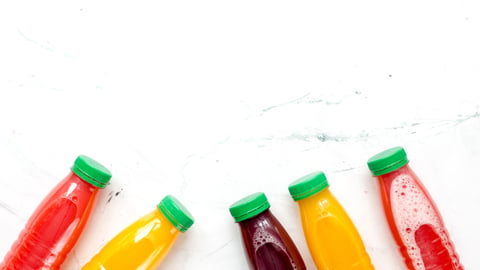As Canadians seek something extra from their beverages, functional drinks are thriving
The functional cold beverage market has seen explosive growth in the last several years – and the trend shows no sign of stopping. The International Market Analysis Research and Consulting Group (IMARC Group) reports that global sales in this category reached US$125.4 billion in 2022, and forecasts the market to climb to $205 billion by 2028.
As president of Nourish Food Marketing, Jo-Ann McArthur has been watching the proliferation of functional drinks closely. She says consumers are increasingly looking to beverages to satisfy different need states throughout the day. These include health benefits like improved digestion, immunity, cognitive boosts and better mental health.
“We’re seeing a redefinition of health to include mental health, so cognition and mental energy are becoming a new need state, as well as mood enhancement,” McArthur says. “I think that’s a real shift, to call out not just what’s in these drinks, but also how [they’re] going to satisfy this need or enhance your mood and your life.”
According to both McArthur and Robin Langford, product category manager for Ontario grocery chain Goodness Me!, Canadians are seeking sugar-free beverages infused with ingredients such as collagen, zinc, prebiotics and probiotics.
“The benefits to skin and joint health that go along with collagen is a big focus. Some energy drinks also offer ingredients like L-theanine to help balance out the caffeine rush some consumers can experience, and L-theanine is also great for reducing anxiety and heart rate. We’re also seeing beverages with herbs, added hydration or vitamins,” says Langford.
READ: Three trends to watch in beverages
Consumer desires are influencing everything from product formulation to advertising to in-store merchandising. In a North American survey conducted from January 2021 through June 2022, Innova Market Research found that 18% of product launches in the cold beverage category advertised zero-sugar claims, an increase from 6% in 2017. Other findings included a rise from 3% to 9% in new products claiming immunity benefits, and a 2% rise in beverages touting organic certification.
Taste test
Brad McMullen, president and co-owner of Summerhill Market, which operates four stores in Toronto, describes functional beverages as “a trend that’s here to stay, and we want to be a leader in it. For us it’s a new category in the last few years, a growing category and one we’ve put a huge effort behind.”
McMullen says he lists a wide variety of functional beverages and lets his customers decide which ones he’ll go back to as a buyer. He encourages this taste-testing by positioning the grab-and-go beverages in coolers near checkouts and by bundling brands to allow consumers to save more by buying more – addressing a challenge for a premium-priced product in an economic climate of tightening belts.
Among his most popular sellers are brands such as Gldn Hour, a collagen-infused sparkling water; Daydream, which includes hemp extracts and adaptogens, and Cove, a Nova Scotia-based company that entered the market through kombucha and recently launched sugar-free Cove Gut Healthy Sodas.
Cove’s co-founder, John MacLellan, believes the flavoured sodas, launched in October 2022 at retailers such as Sobeys and Costco, have what it takes to connect with a wider consumer base than the company’s kombucha products have.
“A lot of people knew about kombucha all of a sudden, but it didn’t mean they were buying it, just because of the price point and the taste,” MacLellan says of the drinks, which promise probiotics for gut health and no artificial ingredients. “That’s where we think we’re cracking the code with the soda. It’s got wide, mainstream appeal on taste and similar benefits as kombucha.
“Our big thing is the taste profile, and the belly-boosting benefits are like a subtrend that’s getting more and more popular with connections to mental health and day-to-day energy levels.”
RISE, the Montreal-based better-for-you beverage company behind RISE Kombucha and RISE Botanicals sparkling teas, recently launched a soda alternative called RISE Better Soda that it says is packed with prebiotic fibre to support gut health and has only two to three grams of sugar per can.
READ: As more consumers prioritize health and wellness, grocers step up their offerings
RISE president Axel Kalbarczyk says more than 1,000 distinct recipes were crafted before the company went to market with three flavours: Orange, Classic Cola and Lemon-Lime. “At RISE, we believe taste should never be sacrificed for health benefits. We want consumers to have the opportunity to enjoy their favourite beverage, but with added benefits.”
Nicholas Reichenbach, who co-founded Flow Alkaline Spring Water in 2014, agrees taste remains paramount, even as his company aims to introduce a functionality every year and prioritizes characteristics like organic certification, natural sourcing and sustainable packaging.
“We’ve been innovating infusion in our water since 2017,” says Reichenbach. “What our innovation maps onto is our consumer’s journey into wellness,” he says. “So, when we innovate, we do it because we want to improve the taste and the health benefits in a way that our consumer wants it.”
Reichenbach cites an annual survey the company conducts with its global consumers that led to the 2020 launch of Flow’s collagen-infused product line, as well as its latest line of elderberry, cherry and citrus-flavoured waters, which promise a daily dose of immunity-boosting vitamin C and zinc.
The move to mainstream
So who exactly is the functional beverage consumer? According to Reichenbach, the market was initially geared to what he describes as the “yoga person” – consumers who shopped intentionally for natural, healthy and environmentally friendly products.
“It was a large consumer base that no one was really addressing, from both the natural side of the product and the sustainability side.” To reach those consumer – as well as the burgeoning mainstream market – Flow has launched advertising campaigns featuring celebrities like Shawn Mendes, Gwyneth Paltrow and Halle Berry. But Reichenbach says the most important marketing tactic remains the simplest: get the product in the customer’s hands.
READ: Non-alcoholic brands ramp up production amid surging demand
“We invest heavily in our retail partners – at least 70% of our budget,” he says. “We sample as much as possible at retail, plus off-shelf programs and flyer activation, and get as many points of distribution as we can within any store.” MacLellan, meanwhile, believes the market for drinks like his Cove Gut Healthy Soda is primed for even more expansion. He hopes to see his products, which are typically stocked in retailers’ health or natural aisles and coolers, move into the middle aisles where mainstream shoppers can find them. “The goal is to make it a mass product,” he says.
Thirsty for change
Whether or not functional beverages become mainstream, experts say they will at least resist inflationary pressures.
“There’s such an emphasis on optimizing mental and physical performance,” Nourish’s McArthur explains. “I don’t think people are going to be giving these up.”
McArthur also sees “lots of blue ocean” for brands to keep innovating. “I think sleep and relaxation, the idea of a non-alcoholic nightcap, there’s a real gap in the market now,” she says, adding there’s opportunity to expand the category beyond single-serve offerings into larger formats for family-wide consumption and social gatherings.
As consumers demand more from their drinks, retailers, brands and market-watchers say one attribute will separate the winners from the losers in the functional beverage arms race.
“Taste is No. 1,” says McArthur. “It can have all the function in the world, but if it doesn’t taste good, you’re dead in the water.”
This article first appeared in Canadian Grocer’s March/April 2023 issue.



